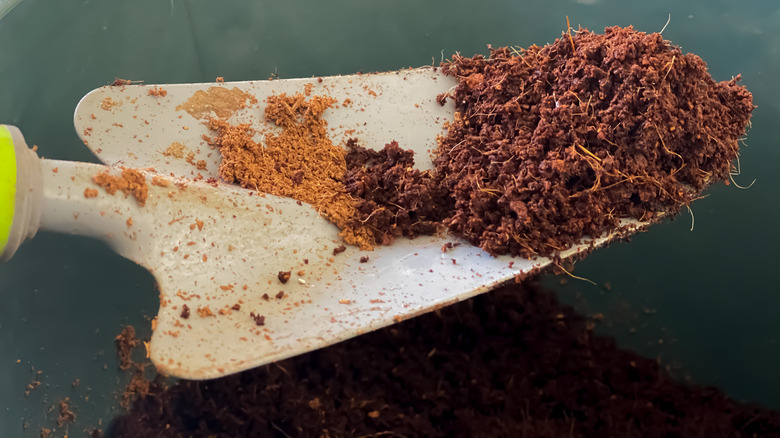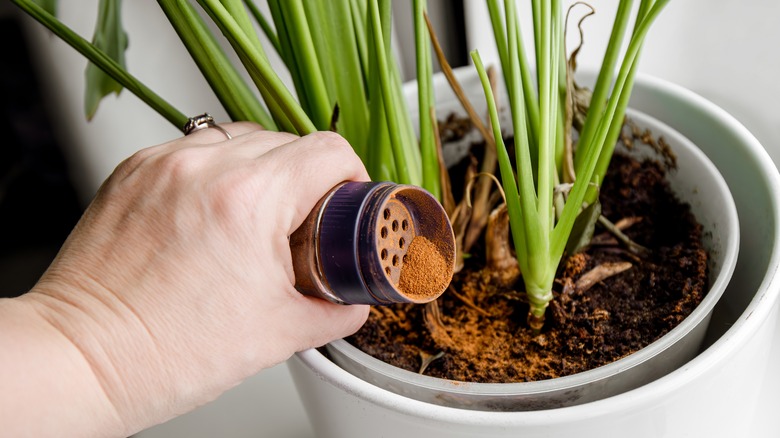Why You Should Add Cinnamon To Your Compost Pile
We may receive a commission on purchases made from links.
If you're a gardener, you probably have a compost bin somewhere. And there are so many rules when it comes to composting — you want to avoid pet waste, fatty substances, meat, dairy, coal ash, anything treated with pesticides, or any dead plants you've removed due to disease, pests, or invasiveness. If you've only just started composting, you'll want to know what you should add instead. Consider tossing in your untreated yard, shrub, and tree trimmings, as well as fruit and vegetable scraps, eggshells, leaves, coffee grounds, and healthy plants at the end of their life. But one other thing you should consider adding is cinnamon.
The cinnamon spice is a carbon-rich ingredient that could reduce compost odors. This is especially important if your compost bin is indoors, because it can certainly have an unpleasant scent. If it's outdoors, cinnamon could potentially be used as an ant deterrent. However, only use it sparingly — perhaps a teaspoon of ground cinnamon, a few dashes of cinnamon essential oil, or one or two whole cinnamon sticks per compost bin, for instance. That's because cinnamon has been found to have antifungal properties, which is good if you're using cinnamon in your routine for a cleaner home. However, if you're trying to build up good bacteria in your compost, it could be less than desirable.
Other purposes for cinnamon in the garden
The benefits of this aromatic spice for your plants don't have to end and begin in your compost pile. There are so many other ways you should be using cinnamon in your garden. If you prefer more organic gardening, you can count on cinnamon essential oil to possibly deter rabbits, squirrels, and deer. You can even purchase spice-scented deer repellent for around $30 on Amazon that contains cinnamon oil as an active ingredient. If you do struggle with disease-ridden plants, the antifungal and antibacterial properties of cinnamon can be even more beneficial for plants than in compost. A 2021 study in the Molecules scientific journal found that when a suspension of water and cinnamon powder was sprayed directly on tomato plants, they grew better than a control group. Plus, it worked to prevent tomato blight.
If you'd rather not fuss with buying sprays, resorting to cinnamon essential oil, or making spray concoctions, consider sprinkling ground cinnamon directly onto your plant. However, avoid sprinkling the leaves in case the powerful cinnamon components burn or scorch them. Just sprinkle it directly into the soil surrounding the plant. This method will also work if you are dealing with seedlings being liable to damping off, a fungal disease that attacks baby plants. Oh, and cinnamon can be used as a potential herbicide if you're dealing with weeds, thanks to the phytotoxic compounds that might inhibit any plant growth. Regardless, cinnamon can be a valuable addition to your compost and yard.

